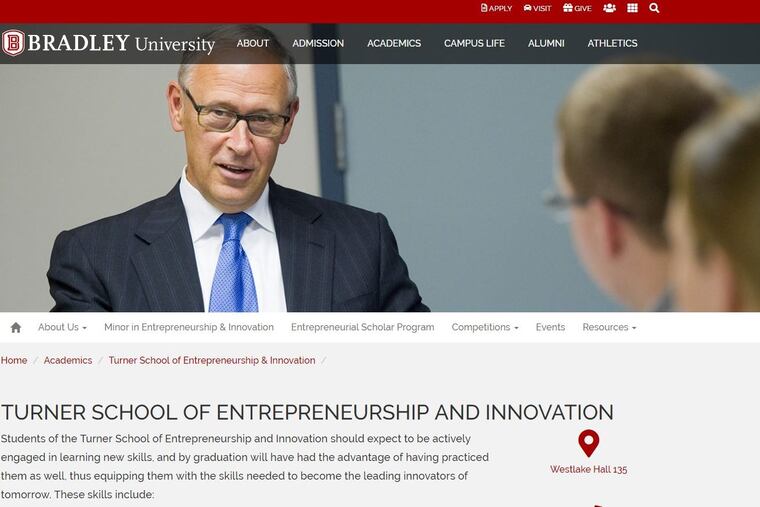Stockpicker Robert E. Turner, who once managed $30 billion, heads to ministry
"I firmly believe that we are placed on this planet to grow daily in our awareness of God. Without the distractions of business, I can do that much better," Turner wrote.

Two summers ago, Robert Eugene Turner, the son of an Illinois boilermaker who invested $30 billion for pension plans and mutual funds in his dot.com heyday, attempted a comeback after his Berwyn-based Turner Investments imploded. Now he has cut short the comeback, and announced a more drastic career change — becoming a minister.
Turner investment funds scored big profits in the 1990s. He picked Cisco Systems in 1990, years before it briefly became the most valuable U.S. company, and was also an early believer in Salesforce. His investors profited handsomely in the dot.com and telecom stock boom.
But he went the wrong way when he urged clients to buy deeply into U.S. stocks just before the market collapse of 2008. That and other ill-timed picks, and the general decline in growth-oriented, active stock funds, drove away clients like Vanguard Group and the Pennsylvania state retirement system (SERS).
As clients left, Turner's prized stock-pickers, who once made his Berwyn-based firm famous on CNBC and BloombergTV, quit in platoons. He sued several of them for joining competitors. Mozido, the flashy billion-dollar "unicorn" global telecom company where Turner served as chairman at the invitation of its founder Michael Liberty, also failed to perform.
But Turner had another bold plan: As customer assets at his old company fell toward zero, he made a fresh start, announcing he would build another fund family, using new automated investing technology to drive down costs.
In July 2016, Turner said he was combining the remaining staff and assets at Turner Investments, with an investment platform formed by Veracen LP, a business started by Radnor investor Michael T. Kennedy, at new offices near Turner's Berwyn base.
The group appealed to friends for $12.5 million they would use to build an automated money management firm they projected would invest $10 billion by this year. They admitted the company was "highly speculative." Last August, a year into the plan, a New York spokesman for the venture predicted it would employ at least 60 people by the end of this year or early next.
Now Turner is out. In a note to friends earlier this summer, Turner, now 61, said he was resigning from the Veracen project, effective last month. "As an investor whose funds have gone" into the group's software and investment platform, "I wish Michael and his team success," Turner wrote. He remains an investor but is no longer active in Kennedy's effort.
Turner told friends he would continue to work with his sons investing their money in a family investment office he calls Windhill. (Turner collected as much as $30 million a year when his firm was prosperous, according to a prospectus his former company once filed in an abortive initial public offering proposal. He used part of his fortune to endow the Turner College of Entrepreneurship and Innovation at his alma mater, the Peoria, Ill.-based Bradley College.)
But mostly, Turner wrote, he planned to "focus my attention on where it counts and that's growing my faith. I firmly believe that we are placed on this planet to grow daily in our awareness of God. Without the distractions of business, I can do that much better."
He said he's been active at his church and in support of City Team Ministries, which runs programs in Chester and Delaware Counties. "And to keep the intellectual challenge growing, I'm enrolled in a four-year program to become an ordained minister," Turner concluded. A Presbyterian, he is studying to be a nondenominational preacher. He declined to comment for this story.
Former employees and associates, speaking on condition they not be named, tell me they were surprised at Turner's choice.
Turner plans to continue his stock investments through the family office, but the public sector of his 40-year investing career appears to be over.